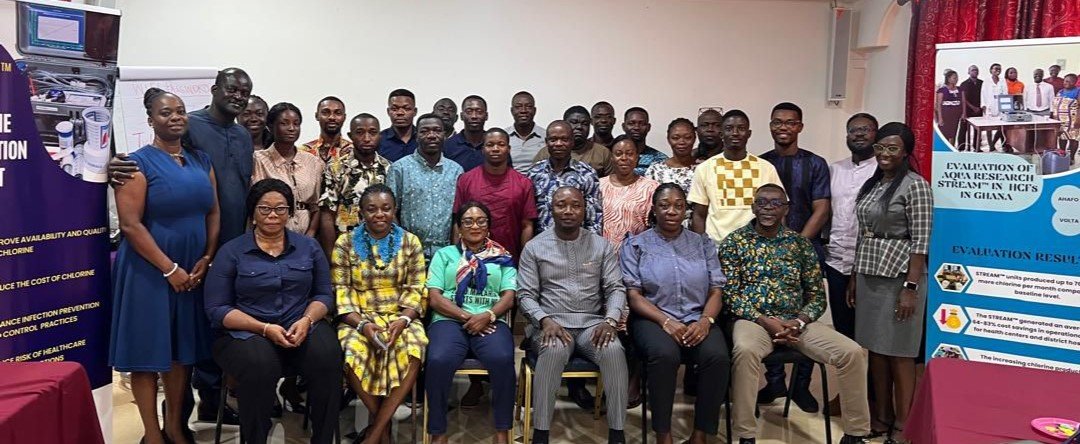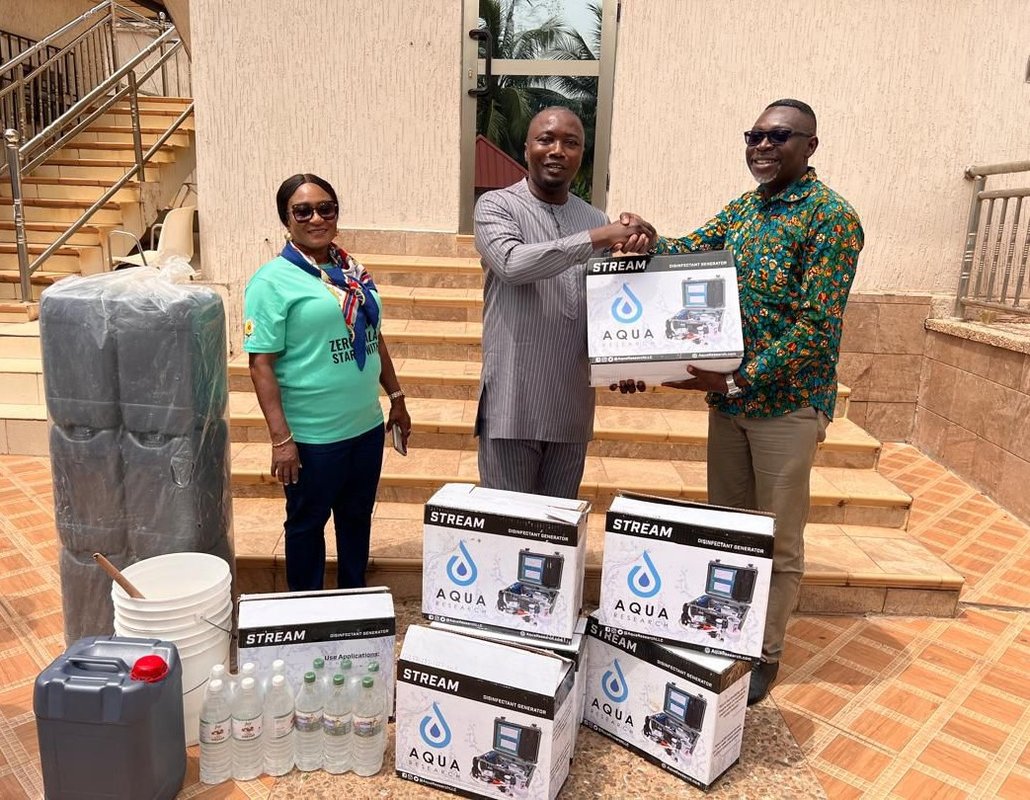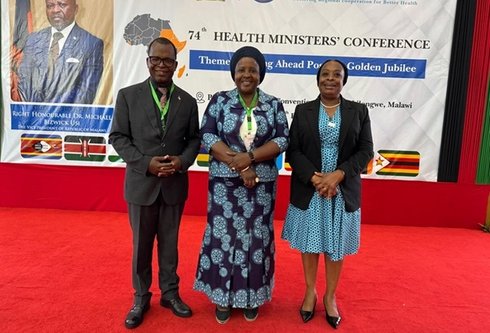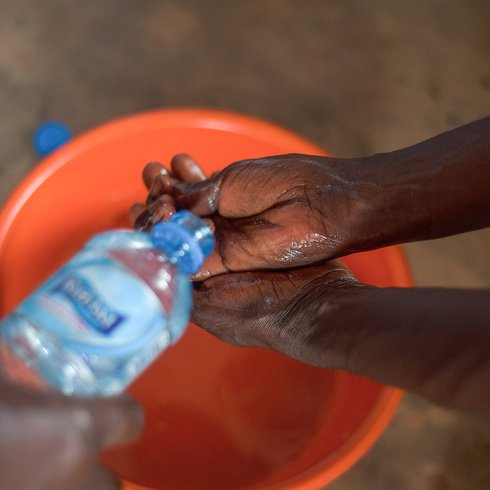To prevent health care–associated infections and bolster infection prevention and control (IPC) practices, PATH is leading the effort to improve the availability and quality of chlorine by scaling up chlorine generator technology in health facilities in Ethiopia, Ghana, and Uganda.
The innovative Aqua Research STREAM™ Disinfectant Generator was designed to provide reliable, consistent, and cost-effective chlorine supply for disinfection, decontamination, and water treatment in health care settings. This device generates a continuous 0.5% chlorine solution on-site, offering a sustainable alternative to commercial chlorine, with an expected lifespan of five years and easy maintenance.
PATH and the Ghana Health Service (GHS) Institutional Care Division (ICD) have partnered to introduce and scale up the use of the STREAM Disinfectant Generator in Ghana—installing, training, and monitoring the use of more than 50 STREAM units in 47 health facilities across eight regions of Ghana.
Based on evidence generated from an initial study demonstrating the device’s effectiveness in reducing chlorine stockouts and producing consistently high-quality chlorine for infection prevention and control practices, the GHS has endorsed the device and is leading a national scale-up this year.
As part of these implementation efforts, PATH and GHS/ICD organized a two-day training workshop to prepare regional health management team members for the expanded introduction of the STREAM device in selected health facilities across five additional regions.
Co-hosted by ICD Director Dr. Lawrene Ofori-Boadu and PATH Country Director Dr. Patience Cofie, the training featured presentations, interactive discussions, and hands-on training. Regional health management teams explored the sustainability of the STREAM device, focusing on maintenance, accessibility of components, and long-term quality control measures as well as sharing feedback on recommended enhancements, such as incorporating an alert system.

Workshop participants developed district implementation plans for each participating region, outlining key steps for rolling out the STREAM device in selected health facilities. Photo: PATH/Debbie Akweley Amoakwao.
District implementation plan key steps:
- Facility selection: Identifying priority health facilities for STREAM deployment.
- Training schedules: Establishing timelines for training health care workers on STREAM operation and maintenance.
- Monitoring and evaluation: Setting up processes for routine performance assessments to ensure sustained use of the devices.
- Procurement and maintenance: Defining strategies to ensure a steady supply of materials and servicing of the devices.
These district implementation plans will serve as roadmaps for successful expansion of the STREAM project, with ongoing technical support from PATH and the GHS/ICD.
At the end of the workshop, STREAM devices and supplies were donated to the GHS/ICD and distributed to regional teams. These teams will train health workers, install the devices, and oversee their integration into facility IPC programs.
Reducing health care–associated infections with accessible chlorine
The STREAM project aligns with Ghana’s broader IPC strategy (2024–2028) and is expected to play a pivotal role in reducing health care–associated infections by ensuring a steady chlorine supply for disinfection.
To ensure sustainability, PATH and the GHS will provide continuous technical support and explore additional training opportunities, including virtual IPC training sessions to enhance the knowledge and skills of health care workers in effective IPC practices. The success of this activity and introduction of the STREAM in these regions is expected to contribute significantly to improving IPC measures in Ghana, ultimately reducing the risk of health care–associated infections and enhancing overall health care service delivery.
Two key follow-on activities are currently underway:
Evaluation of the hub-and-spoke model: To evaluate decentralized chlorine production using the STREAM device, PATH and GHS/ICD are piloting a hub-and-spoke model across six networks of practice in Ghana’s Volta Region. The study assesses changes in chlorine cost, availability, quality, and STREAM reliability, as well as total cost of ownership. Findings will inform Ghana’s national scale-up strategy and the design of sustainable chlorine delivery systems in low-resource settings.
Institutional Water Insecurity Experiences (INWISE) study: PATH and Northwestern University are leading the INWISE validation study in Ghana Central Region to assess effectiveness of the novel WISE Scales to measure WASH insecurity in health facilities across different settings, climates, and participant characteristics. Resulting insights will support the development of more context-specific, user-informed WASH interventions and complement STREAM scale-up efforts by highlighting systemic WASH challenges in facilities.
For more information about the STREAM project, supported by the Conrad N. Hilton Foundation, and other IPC initiatives, visit https://www.path.org/ and https://ghs.gov.gh/.
Advancing Sustainable Development Goals 4 & 6
The study aligns with the United Nations goal to “leave no one behind,” while advancing toward achieving the Sustainable Development Goals (SDG) 6, “ensure availability and sustainable management of water and sanitation for all,” and SDG 4, “ensure inclusive and equitable quality education for all.”



